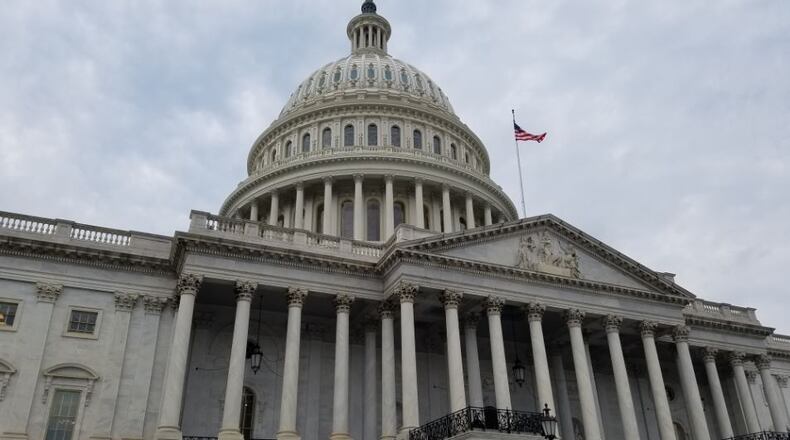1. Trump wants tax reform - but will he get that through Congress? It's very easy to call for tax reform. It's very easy to call for tax cuts. But as we saw with the Republican push to overhaul the Obama health law, it's not easy to get major legislation moving in the Congress - and tax reform may be even more complicated than health care reform. The last time that lawmakers approved a major tax reform package was in 1986 - and it was not an easy legislative lift. You had major players in the Congress pushing for this - Rostenkowski in the House, Dole in the Senate, Reagan in the White House. Do we have those players today in Washington who can push a tax reform boulder up Capitol Hill?
2. "Tax Reform" means many different things. Just pause and think about it for a minute - what does "tax reform" mean to you? For many, it means a tax cut, with lower tax rates. For others, it means lower rates while not getting rid of your favorite deductions. There are some who feel tax reform should be all about a dramatic simplification of the tax system. Some want a "flat" tax. Others have called for the "FairTax," which is a system based on consumption. On the business side, tax reform might mean major changes in the corporate tax system. There's been talk about a "border adjustment tax." All sorts of options would be on the table, and would provide for a lot of winners and losers.
3. What's in the Trump tax reform plan? We don't know that answer right now. On the campaign trail, and in the White House, President Donald Trump talked a lot about tax reform, but has not sent Congress the details of what he wants in such a plan. As mentioned above, the possible policy options are numerous. White House officials said in the last week that Mr. Trump would move away from the plans that he set out in the 2016 elections, and try to have the White House take the lead on setting broad policy changes in the tax code. But the bulk of the work would be up to Republicans in the Congress, who have also issued broad goals, but not all the nitty gritty details and the legislative text of their plans.
4. What about "tax expenditures" in the IRS code? When you talk about 'tax reform,' does that mean the effort should get rid of some of the tax breaks in the IRS code? If you do that, it would help offset a lowering of overall tax rates. But when you get into this realm, there are distinct winners and losers. For example, how about getting rid of the deduction for mortgage interest on your home? Maybe the tax write off for property or sales taxes? Or what about the tax exclusion of up to $250,000 in capital gains ($500,000 per couple) on a home sale? There are all sorts of options here that will impact some Americans, but not others. Remember - tax reform means real winners, and real losers. Some people will gain money, and some will lose.
5. No one will know the special tax breaks right away. One thing to remember is that you will hear all sorts of stories about what a Trump/GOP tax plan would do to your tax rates and popular exemptions. But you probably won't get too much advance knowledge about some of the special interest plans that get included in the fine print. If you dig into the 1986 tax reform law, you will find there is a lot of legislative mumbo jumbo in there; if you don't know what you are looking at, you will never understand the gibberish of tax law. Let's just say, provisions like this one below are what the lobbyists in "Gucci Gulch" will be striving to get in a final tax reform bill.
Like health care, this will not be an easy legislative lift on Capitol Hill. Stay tuned.
About the Author

